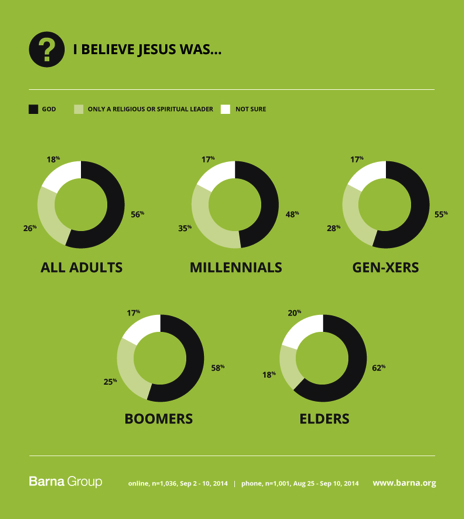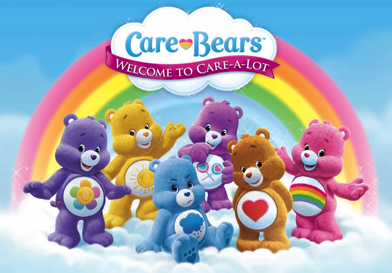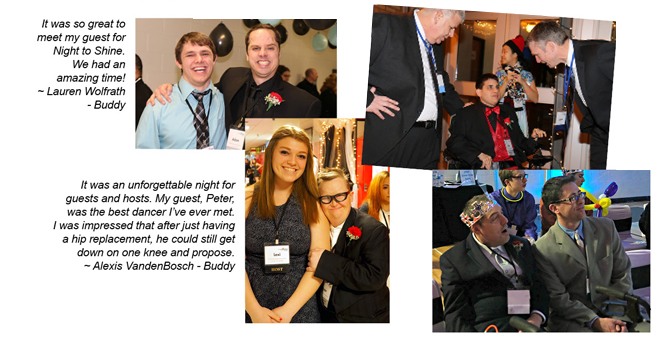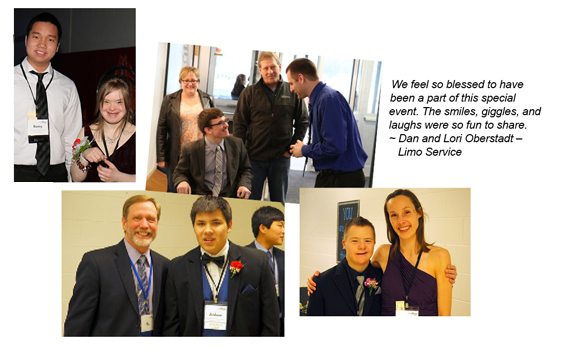Real Heroics
April 30, 2017 | PASTOR ZACHARY PUDLO

A Culture Obsessed with Heroes
“Without selflessness there can be no heroism.” When I heard that phrase I couldn’t help but start thinking about heroism. I’m not the only one. We see heroes all over the place in our world. Some of the highest grossing movies over the past several years have been the Marvel movies. Walk down the children’s toys isle in your local store and the number of toys revolving around those characters will shock you. Our culture is obsessed with heroes. Why is that?
Examining Heroism
On its surface, heroism seems very appealing to us. We love people standing up for their moral convictions even in the face of great oppression. But a deeper look at heroism leads to some puzzling findings.
Heroism demands selflessness. In every story, movie or book about heroes the main character is willing to sacrifice his or her own desires for the greater good. It’s the ultimate act of selflessness to see the hero lay down their life for the sake of the people. Fighting for the greater good the hero will do whatever it takes to win the moral battle against the forces of evil. Without the hero’s sacrifice there would be no heroism. Heroism demands sacrifice.
And while so many people in our culture are obsessed with the idea of heroism, it seems almost duplicitous for our culture. Personal sacrifice is not a part of our culture. Our culture is obsessed about the individual. See my notes about the Age of Enlightenment’s effect on our culture’s obsession with the individual in this post (Previous post on “Why Lives Matter”). Our culture is obsessed with individual rights. It glorifies the individual. Heroism is about an individual giving up his or her rights for the greater good of the many. Those two ideologies are completely contradictory and yet our culture is obsessed with them both! Is there any explanation for this schizophrenic culture we live in?
A Cosmic Need
One of the characteristics about heroes that we love is their unwavering commitment to their moral convictions. Ironically, our culture has no answer as to where morals originated. In a 2016 article called Where Do Morals Come From, Yale Professor, Philip Gorski, wrote
The social sciences have an ethics problem. No, I am not referring to the recent scandals about flawed and fudged data in psychology and political science I’m talking about the failure of the social sciences to develop a satisfactory theory of ethical life. A theory that could explain why humans are constantly judging and evaluating, and why we care about other people and what they think of us.
In short, when people claim that morals are important, they cannot explain where morals came from, what their purpose is, and why they are important.
And while our culture and the social sciences haven’t discovered an answer as to where morals come from any person who is in touch with world news would say that our world has a problem with morals. When you see the wars and murder of innocent people, the ruthless greed, the savage attacks and the violence in our world, it’s easy to conclude that something is wrong. Our world is lacking a clear moral path.
A Cosmic Hero
It’s no wonder we love the idea of heroes. Men and women who come as the solution to the evil of the world. One of the most famous heroes of the Bible was David. Before he became king he was just a shepherd. But one day when his father sent him to see how his brothers were as they were off at war, he faced the test of a lifetime. Just a teenager at the time, he went against the Philistines best warrior, Goliath. Goliath stood about 9 feet tall and still David fearlessly went out to slay that Giant with nothing but a slingshot and a few stones in his pouch. David was a hero because he defended not only his people, but also his God from the nonstop mocking of Goliath. He was willing to risk his life to defend what he believed in.
Many will look at the story of David and Goliath as giving us examples to follow. It’s a story about how we must summon the faith and courage to fight the giants in our lives. But when we do that the story really becomes about us. And there are times in our lives when we will face giants too big to handle only reminding us that we are no heroes at all…we are failures.
There is a temptation to do the same with Jesus, the ultimate hero of the Bible. If you read the Bible and the message you take away is that Jesus is an example of how to be loving and accepting of all people then the Bible really becomes all about you. It’s about how you can be the hero. You can overcome evil with good, hatred with love, anger with kindness, impatience with patience etc… The problem with this is that we all have moments of evil, hatred, anger and impatience. When we read the Bible this way we are only reminded of our failures and how we contribute to this world filled with wickedness.
The very point of the story of David and Goliath is that the Israelites needed a hero, someone to rescue them. And the very point of the Bible is that we all need a cosmic hero to save us from ourselves. God uses the heroics of the substitute to save the Israelites and us.
Tim Keller puts it well in his book on Preaching,
Jesus faced the ultimate giants (sin and death) not at the risk of his life but at the cost of his life. But he triumphed through his weakness and now his triumph is ours—his victory is imputed to us. Until I see that Jesus fought the real giants for me, I will never have the courage to be able to fight ordinary giants in life (suffering, disappointment, failure, criticism, hardship). How can I ever fight the “giant” of failure, unless I have a deep security that God will not abandon me? If I see David only as my example, the story will never help me fight the failure/giant. But if I see David as pointing to Jesus as my substitute, whose victory is imputed to me, then I can stand before the failure/giant. In Jesus I am already loved and acclaimed by God. No worldly success can approximate that. I am no longer petrified by failure, because I triumph in Jesus, our true David. Unless I first believe in the one to whom David points, I’ll never become like David at all.
We’re obsessed with heroes because God has placed a cosmic longing for one in our hearts. But that longing can only be satisfied by Jesus, our ultimate hero. When the enemies of your world make you feel like you’re defeated, look to your ultimate hero. Look to Jesus and see how God will never let you be defeated. He will never let the ultimate enemy of Satan take you to his home. Look to Jesus and see your home already prepared in heaven.
COL Movie Night

A Return to Grace
AMC Showplace Inver Grove 16 – Reserved Theater
April 26 – 6:30 pm
500 years ago, Martin Luther triggered a seismic upheaval that rocked the western world — with an impact that continues to reverberate to this day. This entertaining new film follows the great adventure story of Luther’s life, packed with political intrigue, kidnapping, secret hideouts, and life-or-death showdowns. At the same time,it’s a story about the most important questions of life. “Who am I?” “What is my purpose?” “How do I get right with God?”
All tickets must be purchased in advance for $9 at: http://shepherd.NewLutherMovie.com
Cutting Up Jesus
March 31, 2017 | PASTOR ZACHARY PUDLO

Current Views on Jesus
Barna Group, a Christian polling firm, conducted a poll of adults in 2015 as to their views on who Jesus was. The results are worth noting. Over half of all adults believed Jesus was God. However, the younger the generation, the more that generation believed Jesus wasn’t God. In fact, the majority of Millennials believes Jesus wasn’t God. That means a majority of the upcoming generation believes Jesus was merely a man, or that he wasn’t even an historical figure at all. In the same poll, 13% of Millennials believed Jesus didn’t even exist and isn’t even an historical figure.

How We Got Here
How did we get to this point in history where countless people are not only denying the deity of Jesus but even his historicity?
No more than two hundred years after the Christian Reformation a Biblical interpretation movement began from within the Christian church. This movement can be described as an attempt to answer one important question: Who was the real Jesus? Biblical scholars began to question whether or not the descriptions of Jesus in the Bible were accurate. For many of them the answer was, “No”. The Bible describes Jesus as the Son of God incarnate…a man who walks on water, heals the sick, brings the dead back to life and even rises from the dead after being crucified and laid in a tomb for three days. Since this is humanly impossible, scholars began a movement in which they tried to “reconstruct the historical Jesus”. This movement which tried to portray Jesus apart from a supernatural worldview. In the mid 1800’s many scholars dubbed any account of miracles or the supernatural taking place as incredulous. In doing so the authority of the Bible took a huge blow.
By the early to mid 1900’s a majority of the Bible was considered myth. Rudolf Bultmann is a pioneer of the movement to classify the Bible as myth.
Can the Christian proclamation today expect men and women to acknowledge the mythical world picture as true? To do so would be both pointless and impossible. It would be pointless because there is nothing specifically Christian about the mythical world picture, which is simply the world picture of a time now past which was not yet formed by scientific thinking. It would be impossible because no one can appropriate a world picture by sheer resolve, since it is already given with one’s historical situation. (New Testament and Mythology and Other Basic Writings, pg. 3)
Bultmann is saying that the Bible was written from a mythical worldview and a majority of the Bible is itself a myth. At one point in his life Bultmann even admitted that it isn’t even a worthwhile endeavor to study the Bible. All we can really know is that Jesus lived and that’s good enough.
The Reconstruction Problem
That is where we still find ourselves today. Many people view Jesus as an historical figure who taught some really good things. Why would a group of people try to reconstruct the historical Jesus? What’s wrong with the Biblical account of Jesus? Well…the Biblical Jesus is offensive. Some of the teachings of Jesus are very offensive to our modern individualistic culture. Don’t gossip, love God more than everything and everyone including your own family, don’t look at someone with lust in your heart. These are just a few of the teachings that are very offensive in our society. So how should we respond to these offensive teachings? We discard them. “They must be part of the mythical worldview.”
What happens when you cut a physical part of a person out of them? You don’t have more of that person, but less of that person. The same is true of cutting out the offensive teachings of Jesus from the Bible. The movement to reconstruct the historical Jesus has not given us a clearer picture of who Jesus was, but it has given us a less clear picture. It has given us less of Jesus. It has, in essence, cut up Jesus and taken out all the inoffensive parts of him. What we have now is not a real Jesus but a caricature of him, an extremely inoffensive one.
 However, a reconstructed inoffensive Jesus ISN’T an historically accurate Jesus. The inoffensive Jesus that we have in our society is almost on par with the Care Bears. The Care Bears are fictional bears whose entire purpose was to spread love and kindness for the whole world. They are, quite possibly, the most inoffensive characters in the history of the world. So the question one has to ask is this: Who would kill the Care Bears? No one. No one kills another person for being kind and loving and completely inoffensive. And no one would worship them either. If Jesus was all about love and kindness…if he really was extremely inoffensive, who in the world crucified him? Why would anyone have crucified him for being loving, kind, and inoffensive? Interestingly, it is a consensus even among these reconstructionists that Jesus was crucified.
However, a reconstructed inoffensive Jesus ISN’T an historically accurate Jesus. The inoffensive Jesus that we have in our society is almost on par with the Care Bears. The Care Bears are fictional bears whose entire purpose was to spread love and kindness for the whole world. They are, quite possibly, the most inoffensive characters in the history of the world. So the question one has to ask is this: Who would kill the Care Bears? No one. No one kills another person for being kind and loving and completely inoffensive. And no one would worship them either. If Jesus was all about love and kindness…if he really was extremely inoffensive, who in the world crucified him? Why would anyone have crucified him for being loving, kind, and inoffensive? Interestingly, it is a consensus even among these reconstructionists that Jesus was crucified.The point is this: an inoffensive Jesus isn’t an historically accurate Jesus. He had to be offensive to be cut to pieces by a whip and torn apart by the nails piercing his hands and feet. If he wasn’t offensive, he never would have been murdered. N.T. Wright put it this way in his book The Day the Revolution Began. “‘Young Hero Wins Hearts.’ Had there been newspapers in Jerusalem in the year we now call AD 33, this was the headline you would not have seen. When Jesus of Nazareth died the horrible death of crucifixion at the hands of the Roman army, nobody thought him a hero.” In short, Jesus was no hero. He was no political revolutionary trying to win the hearts of the people and a place on the throne. And he was no cute cuddly care bear whose only goal was to spread love and kindness. He had to be offensive. If he wasn’t he never would have been sentenced to death by his own people.
The people that cut up and crucified Jesus 2000 years ago aren’t alone. People still cut Jesus up today by discarding and disregarding his offensive teachings.
The Truth About Cutting Jesus Up
The truth is there are times we are offended by Christ…offended because he reminds us of our failures, offended because he cuts open our hearts and reveals our pride and aversion to the truth. So what options are we left with? 1) Avoid the truth. We can avoid the offensive statements of Jesus. But that will not leave us with the real Jesus. It will leave us with a cut up fragment of the man he really was. Or we can 2) face the harsh reality. One of the characteristics of a Christian is being dedicated to the truth. There is a proverb that says “Whoever loves discipline loves knowledge, but he who hates correction is stupid.” This proverb is saying that it is foolish, even stupid to avoid the truth. And so the only way to uphold intellectual integrity is to face the truth. We are offended by Jesus because he is God, and we have failed him over and over again.
The results are far better when we face the truth. David writes in Psalm 32 that he wasted away when he hid the truth. When he didn’t confess his sins he felt like he was dying a slow painful death. But then he writes this. “Then I acknowledged my sin to you and did not cover up my iniquity. I said, ‘I will confess my transgressions to the Lord’ and you forgave the guilt of my sin.” When we face this truth, we will also see another beautiful truth… that Jesus didn’t come to rub our faces in our failures. He didn’t come to demand perfect obedience. He didn’t come to offend us and then leave us with no hope of pleasing God. Instead, his entire purpose was to take the punishment for our failures. He came to please God for us. In every other religion it is up to the individual to make up for their personal failures by offering works of service to God. But in Christianity, we see God become man, endure suffering, cuts, thorns, nails. He is cut to pieces for the world to see his love. He is put to death to take our punishment. There is no truth as beautiful as seeing God die for us. Without facing the truth about our failures we will never see that beautiful truth of Jesus taking cuts and wounds for us.
The Labor of Love

BY MARY HANSON
Volunteers at Crown of Life are carrying out a “labor of love” at Mission Wearhouse Thrift Store in Little Canada. This ministry has impacted the lives of people too numerous to count. The pint-sized store, blessed with a bountiful supply of donated items has become a distribution hub for a variety of ministries who serve the needy both locally and internationally. People of all sorts; from the elderly to the unborn, to those as close as the Twin Cities Metro Area and as far away as Russia and Africa, have been touched by their work.
The thrift store, located in a strip mall at 2756 Lake Shore Ave. in Little Canada, is conveniently located next to the New Day Pregnancy Care Center which is partially funded from store sales. Both ministries are overseen by Christian Life Ministries. When the thrift store opened in 2001 the owner offered a low monthly rent along with an option to purchase the strip mall after 1 ½ years.
Early volunteers from Crown of Life, like Dave Danner, Charlene Ohmann, her former husband Earl, and now deceased Chet Witz, had just begun a top to bottom makeover when an enormous supply of donated items landed on the thrift store doorstep; compliments of Wise Penny Thrift Store in Buffalo, Minnesota, which was closing its doors. Volunteers from Christ Lutheran in North St. Paul sprang into action, and by organizing a huge garage sale in the back warehouse area of the store made the first sales. Meanwhile, volunteers were scrubbing, painting, shelving and laying carpet rescued from the old Emanuel School. When the liquor store on Robert St. closed, Charlene’s son, Roger was able to purchase all the steel shelving for $20 and a note from his pastor confirming it was for a non-profit business. “Gently used” clothes racks were acquired after a telephone call alerted the cleaning crew that the racks had been tossed into dumpsters behind a nearby Hilfiger’s clothing store. Even the first cash register was donated. Read more…
The Glory of Jesus

Lesson 1 – Jesus and His Disciples in the Upper Room
Lesson 2 – The Counselor Who Comforts His Own
Lesson 3 – The Son Willingly Bows to His Father’s Will
Lesson 4 – Christ Is Rejected by His Own
Lesson 5 – The King Is Condemned for Telling the Truth
Lesson 6 – Jesus on the Cross
Lesson 7 – The Risen One Has Broken the Power of Death
Lesson 8 – The Victorious One Sends His Gospel to the World
A Night To Shine

St. Croix Lutheran gave hundreds a reason to shine at a unique prom held Friday, February 10, 2017. The school hosted Night to Shine for people with special needs, thanks to a grant from the Tim Tebow Foundation. Night to Shine took place simultaneously, in all 375 locations, 50 states across the nation and 11 countries around the world!

From the moment guests arrive, they were treated like royalty receiving VIP treatment. The ladies were ushered through to hair and makeup. The guys enjoyed a shoe shine.

Every moment, every detail and every memory made was special. There were corsages and boutonnieres, karaoke, limo rides, and of course, dancing! Every guest of Night to Shine experienced a red carpet welcome complete with friendly paparazzi. The highlight of the night – every Night to Shine guest was crowned as a king or queen of the prom.

All of the 200 honored quests were paired with a buddy for the night. Most buddies were student volunteers from St. Croix Lutheran.

Nearly 400 volunteers contributed to Night to Shine and 75 of those were from Crown of Life, ranging from the 8th grade through retirement.
Identity In Culture: How Our Personal Identities Affect the Way We Treat Others
January 28, 2017 | PASTOR ZACHARY PUDLO

The protests and violence over the inauguration weekend really struck me. One of the boasts of our country and our generation is that we are inclusive. And yet with all the riots, name calling, mocking, hate-speech, etc…that we have seen over the past months and years, it seems like we aren’t as inclusive as we’d like to think we are. What has lead us to this point in history where we hear cries of “Peace! Love! Acceptance!” But then we see and hear in the news that there has been another mass shooting, another riot gone bad, another person killed because of their personal beliefs. Even Christians are guilty of crying out “Peace! Love! Acceptance!” And then are heard saying things quite the opposite, posting things far from it, and withholding prayers for it. How have we gotten to this point? Our personal identities are huge factors in the way we treat other people.
Identity Formation
Outward identity formation takes place in many traditional cultures. The sense of self and worth is dictated to you by others, and often times by your family. Imagine a young boy whose name is Tom Baker. His father, grandfather, and great-grandfather before him were all bakers, the best in the village. The gift of baking ran through their blood and everyone knew it. Everyone came to them for their bread and pastries. As a young boy Tom felt immense pressure to live up to the Baker name. If he didn’t then his whole life would be a failure. That’s how outward identity formation works. It is constantly looking to others for a sense of purpose and worth. It needs affirmation from something outside of itself.
Even though that isn’t the primary form of identity formation within our western culture, it still is prevalent. Just consider the kind of pressure some parents still put on their children. As children are asked to put in hours of homework each night, all the while excelling in sports and extracurriculars how are they going to feel if they don’t live up to their parents’ expectations? The external pressure is there, and with that comes an identity formation.
Inward identity formation is the exact opposite. Our western cultural view on identity says, “I don’t care what other people think about who I am. I’m not going to let others dictate to me how I should look, think, or act. I am going to be who I want to be.”
Inward identity formation looks to noone else for validation. You give significance to yourself. The only thing that matters is looking deep into your own heart and discovering what you really want. Don’t let others dictate to you who you should be.
Just be yourself. Isn’t that the cry of our culture? “You be you.” “Just be yourself.” “Nonconformity.” It’s about stepping away from the pressures of outsiders trying to make you live up to a certain expectation. Elsa summarizes it well when she sings:
Just be yourself. Isn’t that the cry of our culture? “You be you.” “Just be yourself.” “Nonconformity.” It’s about stepping away from the pressures of outsiders trying to make you live up to a certain expectation. Elsa summarizes it well when she sings:
 It’s time to see what I can do
It’s time to see what I can doTo test the limits and break through
No right, no wrong, no rules for me,
I’m free!
Identity Exclusion
But there is a problem with each of these forms of identity. They are prone to an exclusive treatment of others. Consider Tom Baker again as it relates to outward identity formation. He would have received immense pressure not only from his direct family, but also the entire village. “Tom is a Baker, and he can’t even bake?” the villagers would murmur in the streets. Tom would become the laughing stock of his family and the whole village if he didn’t live up to his name. In outward identity formation, if you don’t live up to the expectations of the outsiders you will be treated as an outsider. You will be mocked and ridiculed. You may even be entirely excluded from your family.
The same is actually true of inward identity formation. In The Illusions of Postmodernism Terry Eagleton writes, “For all its vaunted openness to the Other, postmodernism can be quite as exclusive and censorious as the orthodoxies it opposes.” He’s saying postmodernism preaches being open and inclusive to everyone…accept people for who they are no matter how they identify. And the postmodern culture does just that. They accept every single person for who they are…that is, unless you don’t hold to that same core value. If you are part of a group that is exclusive and isn’t open to everyone, then you are wrong. If you exclude anyone then you yourself will be excluded by this culture. Ironically, inward identity formation is just as exclusive as outward.
 And it’s exclusive in another way as well. When you find a sense of self and worth by looking inward, then your own individual interests prevail over all else. It even ranks higher than any and every social tie. Your Self becomes more important than friends, spouse, even family. When familial communities break down, people begin to connect in groups or “social networks” of people who are like themselves. Family, marriages, society begin to crumble into warring sects or parties…each one screaming, “Be more loving! Be more like us!” at the others.
And it’s exclusive in another way as well. When you find a sense of self and worth by looking inward, then your own individual interests prevail over all else. It even ranks higher than any and every social tie. Your Self becomes more important than friends, spouse, even family. When familial communities break down, people begin to connect in groups or “social networks” of people who are like themselves. Family, marriages, society begin to crumble into warring sects or parties…each one screaming, “Be more loving! Be more like us!” at the others.An Inclusive Solution
It appears that both inward and outward identity formation have their problems. But there is a third solution…and upward identity formation, an identity formed by God. I fully recognize that this is where many will be skeptical. How can we possibly claim that adding religion into the identity formation will lead people to be less exclusive when there is so much division caused by religion? I can’t tell you how many times I have heard it said that Christianity is just another religion promoting moral behavior and is just as exclusive as any other religion. But that cannot be any further from the truth.
I would point you to the statistics that show that Christianity is the only worldwide religion, the only religion that is truly embracing of every culture and background. Over 90 percent of Muslims live in Southeast Asia, the Middle East, and Northern Africa. Over 95 percent of Hindus are in India and the surrounding areas. Almost 90 percent of Buddhists are in East Asia. And yet Christianity is spread out all across the globe, 25 percent in Europe, 25 percent in Central and South America, 22 percent in Africa, 15 percent in Asia and 12 percent in North America.
Christianity clearly displays far more tolerance for cultural diversity than any other religion. That’s because the Christian identity does not come from conforming to cultural norms, or from looking inward. And opposed to every other religion it certainly doesn’t come from obeying rules. It doesn’t come from any moral success. If it did, then the Christian identity would be just as fragile and exclusive as every other form of identity formation.
As an educator I still see this in the classroom. Some children find their sense of self and worth in their moral successes. They find their confidence in their personal track record in keeping all the classroom rules. But those who base their identity on their record of keeping the rules not only are crushed when they do end up breaking the rules, but they also treat those who regularly break the rules with a sense of superiority. They tend to be exclusive towards those who aren’t as morally upright as they are.
While some people who call themselves Christians still act this way by treating people poorly who have a lower moral standard, it certainly isn’t the Christian teaching on identity. The Bible says all people are created in God’s image (Genesis 1:26-27). That means that it doesn’t matter what your race, gender, social status or moral behavior is. God created all and loves all. And even more than that God shows that he treats all people with sacrificial love. “But God demonstrates his own love for us in this: While we were still sinners, Christ died for us.” (Romans 5:8) This means that despite the fact that we are truly outsiders and outcasts in God’s eyes, he still loved us. He didn’t treat us differently because of our moral failures. No one has the right to tell you who you are or who you should be, not even yourself. God alone can give you your identity.
Do you see how the Christian God alone can give us an identity that doesn’t lead to exclusion? He tears down any feeling of superiority by reminding us that we are so flawed and guilty that the only payment for our failures was the life and death of the Son of God. And yet he builds up our sense of worth by showing us we were worth that very payment, the life and death of the Son of God.
If this is true, how could any of us possibly treat any other human being with less love than the creator God who died for his own creatures?
If you build your identity on what Jesus Christ did for you, you cannot feel superior to anybody. In fact, you have no need to compare yourself to anybody else because your identity is based on a God who was excluded and cast out for you. That will turn you into someone who finds confidence in something immovable, embraces the excluded and loves the different.


